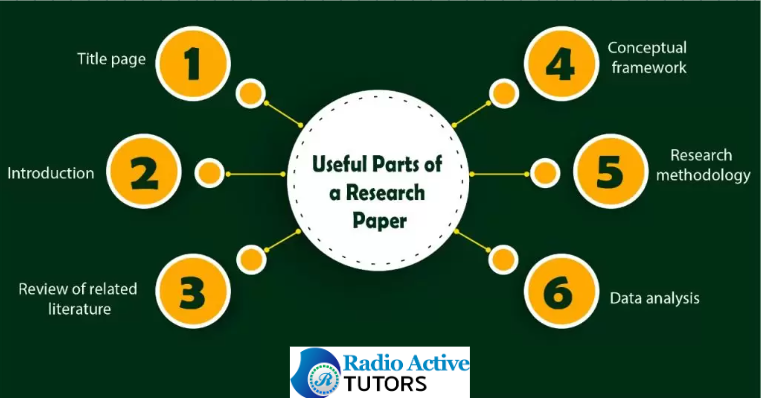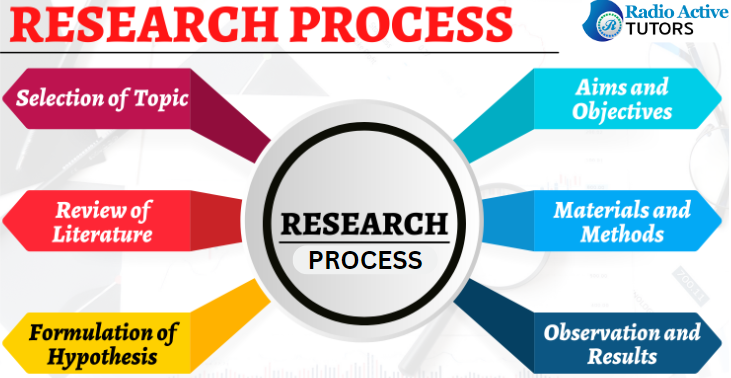Table of Contents
I. Introduction to Accounting Research Papers
II. Key Components of Accounting Research Papers
III. Navigating the Research Process
IV. Writing Style and Structure
V. Tips for Effective Data Presentation
VI. Common Pitfalls to Avoid
VII. The Intersection of Accounting and Technology
VIII. Conclusion
Business Accounting Research Papers
(8 Effective Points)
- Introduction to Accounting Research Papers

A. Definition and Purpose of Accounting Research Papers
Accounting research papers serve as intellectual investigations into various facets of accounting, aiming to explore, analyze, and contribute valuable insights to the dynamic field. These papers delve deep into financial frameworks, methodologies, and contemporary issues, offering a comprehensive understanding of accounting practices.
The primary purpose of accounting research papers is not only to expand the academic knowledge base but also to inform and influence practical applications in the professional realm. By rigorously examining topics such as financial reporting, auditing, and taxation, these papers contribute to the evolution of accounting standards and best practices, fostering a continuous dialogue between academia and industry. In essence, accounting research papers are a vital conduit for advancing the precision and effectiveness of accounting methodologies in both theoretical and practical domains.
B. Importance of Research in Advancing Accounting Practices
The importance of research in advancing accounting practices cannot be overstated. Accounting research papers play a pivotal role in driving innovation, enhancing methodologies, and refining the very foundations of accounting principles. Through rigorous investigation and analysis, these papers contribute to the development of more efficient financial reporting systems, robust auditing procedures, and insightful taxation frameworks.
By scrutinizing current practices and addressing emerging challenges, accounting research becomes a catalyst for positive change in the industry. It not only keeps professionals abreast of the latest developments but also empowers them to adapt to evolving financial landscapes. The insights gleaned from research contribute significantly to the ongoing dialogue within the accounting community, fostering a culture of continuous improvement and ensuring that the profession remains dynamic, relevant, and resilient in the face of ever-changing economic realities.
C. Significance in Academic and Professional Spheres
Accounting research papers hold immense significance in both academic and professional spheres, serving as bridges between theoretical knowledge and practical application. In academia, these papers contribute to the intellectual growth of the discipline, shaping the curriculum and providing students with insights into cutting-edge accounting methodologies. They also facilitate the development of new theories and paradigms, elevating the overall academic discourse.
In the professional realm, accounting research papers act as invaluable resources, guiding professionals in navigating complex financial challenges and staying abreast of industry trends. They serve as reference points for practitioners, offering evidence-based solutions to real-world problems. Ultimately, the dual impact of accounting research papers in academia and the professional world underscores their crucial role in advancing the collective understanding and application of accounting principles.
- Key Components of Accounting Research Papers

A. Title Selection Strategies
The process of crafting an effective accounting research paper begins with a critical consideration of title selection. A well-chosen title not only captures the essence of the research but also entices readers and sets the tone for the entire paper. When selecting a title, researchers should aim for clarity and conciseness, ensuring that it succinctly reflects the focus and scope of the study.
Utilizing keywords relevant to the research topic enhances discoverability and attracts the attention of both academic and professional audiences. Additionally, researchers may consider incorporating elements that convey the novelty or significance of their work. Striking a balance between informativeness and intrigue, a thoughtfully chosen title establishes the initial connection with readers, prompting them to delve into the substance of the accounting research paper.
B. Crafting a Strong Abstract
Crafting a strong abstract is a critical component of accounting research papers, serving as a concise yet comprehensive summary of the entire study. An effective abstract provides a clear snapshot of the research problem, objectives, methodology, key findings, and implications. It should be written with precision, encapsulating the essence of the paper in a limited word count.
Researchers must articulate the significance of their work and its contribution to the existing body of knowledge. Including key keywords helps improve the paper's visibility in academic databases and facilitates efficient information retrieval. A well-crafted abstract not only acts as a preview for potential readers but also serves as a decision-making tool for those determining the relevance of the research to their own interests or professional needs. In essence, the abstract is a vital gateway that invites readers to delve deeper into the nuanced details of the accounting research paper.
C. Methodology: A Deep Dive into Research Approaches
The methodology section of accounting research papers involves a meticulous exploration of the research approaches employed to address the study's objectives. Researchers need to provide a comprehensive overview of the methods chosen for data collection, analysis, and interpretation. Whether adopting quantitative, qualitative, or mixed-method approaches, clarity in detailing the rationale behind method selection is crucial.
This section should delve into the intricacies of the research design, sampling techniques, and data collection instruments, demonstrating a robust framework that ensures the reliability and validity of the findings. Additionally, researchers may discuss ethical considerations and potential limitations, offering transparency to readers. A thorough methodology not only provides a roadmap for replication but also instills confidence in the rigor of the research, making it a foundational element in accounting research papers.
D. Literature Review: Building a Foundation for Insights
The literature review stands as a cornerstone in accounting research papers, playing a pivotal role in building a robust foundation for insights. This section involves a comprehensive survey of existing scholarly works relevant to the research topic. Researchers should critically analyze and synthesize previous studies, identifying gaps, contradictions, and trends in the literature. By doing so, the literature review not only contextualizes the current research but also positions it within the broader academic discourse.
This critical examination helps researchers derive theoretical frameworks, hypotheses, and research questions, setting the stage for their own contributions. Emphasizing key findings and methodologies from prior works provides a benchmark against which the new study's significance and originality can be gauged. A well-crafted literature review, therefore, acts as a guiding beacon, shaping the trajectory of the accounting research paper and ensuring its meaningful contribution to the field.
E. Data Collection and Analysis Techniques
In the realm of accounting research papers, the section dedicated to data collection and analysis techniques holds paramount importance. This segment provides a detailed account of how researchers gathered and processed information to draw meaningful conclusions. Researchers need to articulate their chosen data collection methods, whether through surveys, interviews, archival research, or other means, emphasizing their appropriateness for the research questions at hand.
The section should also delve into the intricacies of data analysis techniques, whether employing statistical methods, content analysis, or qualitative coding. Clarity on how variables were measured and relationships were examined ensures the transparency and replicability of the study. Additionally, researchers must address potential biases and limitations inherent in their chosen techniques, contributing to the overall reliability and validity of the findings. A meticulous exposition of data collection and analysis techniques is indispensable, forming the bedrock upon which the empirical contributions of accounting research papers stand.
- Navigating the Research Process

A. Choosing a Relevant Topic
Choosing a relevant topic is a pivotal stage in navigating the research process of accounting research papers. Researchers must carefully consider the current landscape of accounting, identifying gaps, challenges, or emerging trends that warrant exploration. The chosen topic should align with the researcher's interests and expertise, ensuring a sustained commitment to the study.
Additionally, the relevance of the topic to the broader academic and professional community should be assessed, aiming for a balance between originality and practical significance. To facilitate the selection process, researchers may explore recent developments, controversies, or areas with limited existing research. A well-chosen topic not only establishes the foundation for a compelling research question but also sets the trajectory for a study that contributes meaningfully to the evolving discourse in the field of accounting.
B. Developing a Clear Research Question
Developing a clear research question is a crucial step in navigating the research process of accounting research papers. Researchers must refine the broad topic into a specific, focused inquiry that guides the entire study. A well-crafted research question is typically concise, relevant, and structured to address a specific aspect of the chosen topic. It serves as the compass, directing the research towards meaningful exploration and analysis.
To enhance clarity, the question should be formulated with an understanding of existing literature and a keen awareness of the gaps or controversies in the field. Moreover, the research question should be aligned with the overall objectives of the study, ensuring that the findings contribute substantially to the existing body of knowledge. A clear research question not only streamlines the research process but also establishes the foundation for a purposeful and impactful accounting research paper.
C. Identifying Research Gaps
Identifying research gaps is a pivotal aspect of navigating the research process in accounting research papers. This step involves a meticulous examination of existing literature to pinpoint areas where knowledge is lacking or incomplete. Researchers should critically evaluate previous studies, identifying inconsistencies, unexplored dimensions, or unanswered questions within the field.
By recognizing these gaps, researchers can carve out a niche for their study, contributing fresh insights and addressing unresolved issues. This process requires a nuanced understanding of the current state of accounting research, enabling researchers to position their work within the broader context and highlight its potential significance. Identifying research gaps not only refines the focus of the study but also adds value to the academic community by pushing the boundaries of knowledge in the field of accounting.
D. The Role of Hypotheses in Accounting Research
The role of hypotheses in accounting research is fundamental to the scientific inquiry undertaken in the field. Hypotheses act as tentative propositions or educated guesses that researchers formulate based on existing theories, observations, or logical reasoning.
In accounting research papers, hypotheses serve as the building blocks of the study, providing clear and testable statements about the relationships between variables. These statements guide the research process, outlining the expected outcomes and facilitating empirical testing.
E. Ethical Considerations in Accounting Studies
In the realm of accounting research papers, ethical considerations stand as the bedrock of responsible inquiry. Researchers are tasked with upholding the highest standards of integrity throughout the research process. Obtaining informed consent, ensuring participant confidentiality, and prioritizing transparency in reporting findings are essential ethical benchmarks.
Addressing potential conflicts of interest and adhering to established ethical guidelines not only fosters trustworthiness but also ensures that the impact of accounting studies is both meaningful and ethically sound. By navigating the complexities of ethical considerations with diligence, researchers contribute to the credibility and reliability of their work, upholding the ethical fabric of the broader accounting research community.
- Writing Style and Structure

A. Clarity and Conciseness in Language
Maintaining clarity and conciseness in language is a paramount aspect of the writing style and structure in accounting research papers. Researchers should strive for precision in expression, ensuring that their ideas are communicated in a straightforward manner. This involves using clear and unambiguous language to convey complex concepts and findings.
Avoiding unnecessary jargon and convoluted sentences enhances readability and comprehension. The use of concise language not only respects the reader's time but also contributes to the overall professionalism of the research. Striking a balance between detail and brevity allows for efficient communication of key points, fostering a writing style that is both accessible and impactful in the realm of accounting research.
B. The Art of Citations and References
In the context of accounting research papers, the art of citations and references is integral to maintaining scholarly rigor and acknowledging the foundation upon which the research is built. Researchers must adhere to established citation styles, such as APA, MLA, or Chicago, ensuring consistency and accuracy throughout the paper. Properly citing sources not only gives credit to the original authors but also allows readers to trace the intellectual lineage of the study.
The reference list should be meticulously compiled, encompassing all works cited in the paper. Striking a balance between citing relevant literature and avoiding over-reliance on certain sources is essential for a well-rounded and authoritative research paper. By mastering the art of citations and references, researchers contribute to the credibility and academic integrity of their work in the field of accounting.
C. Formatting Guidelines for Accounting Research Papers
Formatting guidelines play a pivotal role in shaping the writing style and structure of accounting research papers. Adhering to specific formatting standards, such as those outlined by academic institutions or publication guidelines, ensures a cohesive and professional presentation. Researchers must pay attention to details such as font size, margins, line spacing, and citation styles to meet the prescribed formatting requirements.
Consistent adherence to these guidelines not only enhances the visual appeal of the paper but also reflects a commitment to scholarly standards. Well-formatted accounting research papers not only convey information effectively but also contribute to the overall professionalism and credibility of the research within the academic community.
D. Crafting an Engaging Introduction
Crafting an engaging introduction is a pivotal aspect of the writing style and structure in accounting research papers. The opening section serves as a gateway, captivating the reader's attention and setting the tone for the entire paper. In accounting research, a compelling introduction often begins with a concise background, introduces the research question, and highlights the significance of the study.
Researchers may employ engaging anecdotes, pose thought-provoking questions, or present compelling statistics to draw readers into the subject matter. A well-crafted introduction not only provides a roadmap for the paper but also stimulates interest, motivating readers to delve deeper into the research findings. By blending informativeness with an enticing narrative, accounting researchers ensure that their work makes a strong and memorable first impression.
E. Building a Convincing Argument in the Body
Building a convincing argument in the body of accounting research papers requires a meticulous and logical approach. Researchers must present a well-structured narrative, with each section contributing to the overall coherence and persuasiveness of the study. The body of the paper is where evidence, data, and analyses come to the forefront, supporting the research question and hypotheses.
Clear and concise explanations, supplemented by relevant literature and empirical findings, are crucial to substantiate the researcher's claims. A structured and cohesive argument not only enhances the paper's credibility but also facilitates the reader's understanding of the complexities within the accounting research domain. By carefully constructing a persuasive argument in the body, researchers ensure the effectiveness of their communication and the impact of their findings on the scholarly audience.
F. Concluding with Impact: Summarizing Key Findings
Concluding with impact is a vital aspect of the writing style and structure in accounting research papers, providing a cohesive endpoint that resonates with the reader. In this final section, researchers summarize key findings and re-emphasize the significance of their study. The conclusion should not merely recapitulate information but rather offer a synthesis of the research's contributions to the field of accounting.
By succinctly tying together the research question, methodology, and results, researchers leave a lasting impression on the reader. This section serves as the culmination of the paper's narrative, leaving the audience with a clear understanding of the study's implications and potential avenues for future research. Crafting a conclusion with impact ensures that the research leaves a lasting mark, contributing meaningfully to the ongoing discourse in the accounting domain.
- Tips for Effective Data Presentation

A. Infographics and Visualizations
In the realm of accounting research papers, incorporating infographics and visualizations is a powerful tip for effective data presentation. Visual elements such as charts, graphs, and infographics not only enhance the aesthetic appeal of the paper but also serve as potent tools for conveying complex information in a digestible manner.
Researchers can strategically utilize visuals to highlight trends, comparisons, or correlations within their data, providing readers with a more intuitive understanding of the findings. Well-designed infographics not only enhance the overall readability of the paper but also contribute to the clarity and impact of the presented data. This visual approach not only engages the audience but also reinforces the key messages, making it an invaluable aspect of effective data presentation in accounting research papers.
B. Tables and Graphs: Making Numbers Speak
In accounting research papers, leveraging tables and graphs is a fundamental strategy for effective data presentation, allowing numbers to articulate a compelling story. Tables offer a structured format for presenting detailed data, facilitating a comprehensive examination of figures and trends. On the other hand, graphs, such as bar charts or line graphs, provide a visual representation that can quickly convey patterns and relationships within the data.
Researchers should choose the most suitable format based on the nature of their findings. Clear labeling, appropriate scaling, and judicious use of color enhance the visual impact. When executed thoughtfully, tables and graphs not only enhance the accessibility of complex numerical information but also elevate the overall quality of the accounting research paper, making the data more interpretable and engaging for the readers.
C. Ensuring Data Accuracy and Consistency
Ensuring data accuracy and consistency is a paramount tip for effective data presentation in accounting research papers. Researchers must meticulously validate and verify their data to maintain the integrity of their findings. This involves thorough scrutiny of calculations, confirmation of data sources, and attention to detail in reporting.
Consistency in formatting, units, and presentation style across different sections of the paper is equally crucial. By prioritizing accuracy and consistency, researchers not only instill confidence in their results but also provide a solid foundation for readers and peers to comprehend and trust the presented data. This commitment to precision contributes to the overall reliability of the research, reinforcing its credibility within the academic and professional realms of accounting.
- Common Pitfalls to Avoid

A. Ambiguous Research Questions
Avoiding ambiguous research questions is imperative in the pursuit of clarity and precision in accounting research papers. Ambiguity can lead to misinterpretation and hinder the overall coherence of the study. Researchers must ensure that their research questions are explicitly formulated, leaving no room for confusion or multiple interpretations.
Clear and well-defined questions guide the entire research process, enabling focused data collection and analysis. Ambiguity in research questions not only compromises the validity of the study but may also impede the relevance of findings to the broader academic and professional communities. By steering clear of ambiguous formulations, researchers enhance the overall quality of their work, fostering a robust foundation for meaningful contributions to the field of accounting.
B. Flawed Methodologies
Avoiding flawed methodologies is paramount in maintaining the credibility and reliability of accounting research papers. A flawed methodology can undermine the entire study, compromising the accuracy and validity of the findings. Researchers must carefully design and articulate their research approaches, ensuring alignment with the research questions and objectives.
Common pitfalls, such as inadequate sampling, biased data collection methods, or inappropriate statistical analyses, can lead to skewed results and erroneous conclusions. Rigorous scrutiny and adherence to established research standards are essential to mitigate these pitfalls. By sidestepping flawed methodologies, researchers not only uphold the integrity of their work but also contribute to the robustness and trustworthiness of accounting research within the academic and professional domains.
C. Misinterpretation of Data
Avoiding the misinterpretation of data is a critical consideration in the realm of accounting research papers. Misinterpreting data can lead to erroneous conclusions and undermine the credibility of the entire study. Researchers must exercise diligence in analyzing and understanding the intricacies of their data, avoiding hasty or biased interpretations. Proper contextualization, triangulation of multiple data sources, and awareness of potential confounding variables are essential safeguards against misinterpretation.
Additionally, clear and transparent reporting of findings allows readers to comprehend the nuances of the data, reducing the risk of misinterpretation. By navigating these potential pitfalls, researchers contribute to the accuracy and reliability of their research, fortifying the overall impact and integrity of their contributions to the field of accounting.
D. Neglecting Ethical Guidelines
Neglecting ethical guidelines is a serious pitfall that researchers must steadfastly avoid in the realm of accounting. Ethical considerations form the foundation of responsible research conduct, and overlooking them can lead to severe consequences. Researchers must prioritize obtaining informed consent, ensuring participant confidentiality, and transparently disclosing any potential conflicts of interest.
Neglecting ethical guidelines not only jeopardizes the integrity of the research but also undermines the trustworthiness of the entire study. By adhering to ethical standards, researchers not only uphold the principles of fairness and integrity but also contribute to the credibility and reputation of accounting research within both academic and professional spheres. It is imperative to conscientiously navigate these ethical considerations to ensure the ethical soundness and impact of accounting research papers.
E. Overlooking Peer Review and Feedback
Overlooking peer review and feedback is a common pitfall that can hinder the quality and credibility of accounting research papers. Peer review serves as a crucial mechanism for validating research methodologies, findings, and interpretations. Neglecting this process may result in the oversight of potential flaws or biases in the study.
Additionally, failing to consider and incorporate constructive feedback from peers can limit the refinement of the research, hindering its overall impact and contribution to the field. Engaging in thorough peer review not only ensures the robustness of the research but also fosters a collaborative and iterative approach, ultimately enhancing the quality and reliability of accounting research within the scholarly community. Researchers should actively seek and value peer input to refine and strengthen their work.
- The Intersection of Accounting and Technology

A. Incorporating Technological Tools in Research
The intersection of accounting and technology represents a dynamic space where innovation and efficiency converge. Incorporating technological tools in accounting research papers is essential for staying at the forefront of the evolving landscape. Researchers can leverage advanced software for data analysis, artificial intelligence for predictive modeling, and cloud-based platforms for collaborative work. These tools not only streamline research processes but also enhance the accuracy and depth of analyses.
Moreover, the integration of technology enables researchers to explore novel research methodologies, such as big data analytics, which can uncover patterns and insights that traditional methods may overlook. Embracing technological advancements in accounting research not only accelerates the pace of discovery but also positions researchers to navigate the complexities of contemporary financial ecosystems. It is a pivotal step towards aligning accounting practices with the transformative power of technology.
B. Analyzing the Impact of Technology on Accounting Practices
The intersection of accounting and technology is a focal point in contemporary accounting research papers, where scholars delve into the profound implications of technological advancements on accounting practices. This exploration involves a comprehensive analysis of how technology is reshaping traditional accounting methodologies. Researchers investigate the integration of cutting-edge technologies such as artificial intelligence, machine learning, and blockchain in financial processes.
The impact of these technologies on the accuracy, efficiency, and security of accounting practices becomes a central focus. Additionally, the real-time data accessibility and advanced analytics capabilities afforded by technology are examined for their transformative effects on decision-making in the financial realm. Through a meticulous examination of these impacts, accounting research papers contribute valuable insights to both academic discourse and professional practices, shaping the future trajectory of accounting in the digital age.
VIII. Conclusion
In conclusion, the intersection of accounting and technology represents a dynamic and transformative landscape that is continually shaping the field. Through the lens of accounting research papers, it becomes evident that technology is not merely a tool but a catalyst for profound changes in accounting practices.
Researchers play a pivotal role in analyzing the impact of technology, exploring its implications on efficiency, accuracy, and decision-making processes. Embracing technological advancements, such as artificial intelligence and blockchain, is not only advantageous but essential for staying relevant in the modern financial landscape. However, this intersection also brings challenges, such as ethical considerations and cybersecurity risks, that demand careful navigation.
As accounting research continues to unfold, it contributes not only to the academic understanding of these changes but also guides practitioners in adopting strategies that align with the evolving nature of accounting in the digital age. The synthesis of rigorous research and practical insights serves as a beacon, illuminating the path for a future where accounting and technology seamlessly coalesce for the benefit of both scholars and professionals alike.
